Sanitation and Clean Water
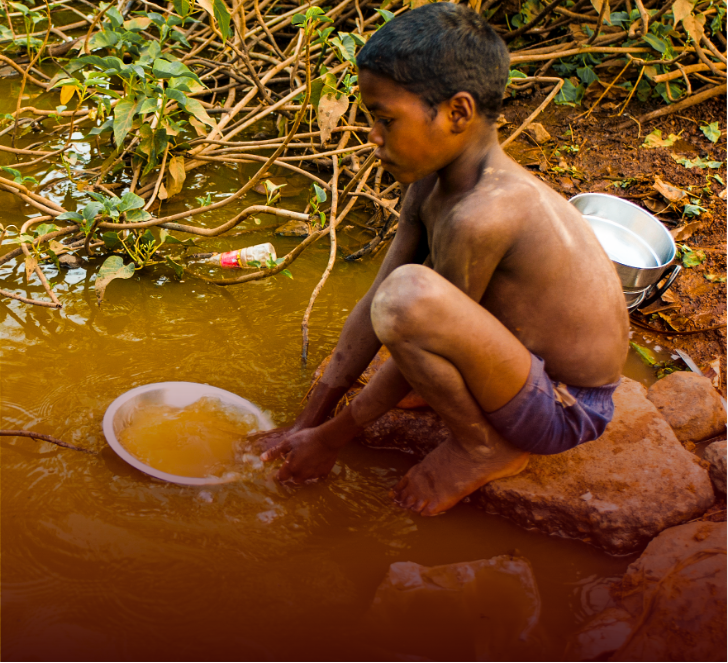
the global water andsanitation crisis
The Believers Eastern Church is tackling the water and sanitation crisis with practical on-site solutions. Many people in our world today have no option but to rely on unsafe and often contaminated water for cooking, bathing, and even drinking. Open defecation and lack of toilets contribute to unsanitary conditions that cause sickness and disease, lowering the quality of life and preventing the escape from poverty.
-
inaccessibility
-
1 in 9 people do not have access to safe water
-
Women and girls spend up to 6 hours every day collecting water
-
1 in 3 people do not have access to a toilet
-
-
mortality
-
Every 90 seconds, a child dies from a water-related disease.
-
Unsafe water and lack of basic sanitation cause 80% of diseases and kill more people every year than all forms of violence, including war
-
An average Dalit woman in India dies 14.6 years younger than women from higher castes as a result of poor sanitation and inadequate water supply
-
what clean water and decent toilet can do
-
unlock education
Access to clean water allows children to return to school instead of hauling water for hours. It boosts their school attendance and helps them reach their full potential. In societies where education for women is undervalued, the lack of toilets for girls in schools limits their ability to continue their education through their teenage years.
-
drive economic growth
Access to water leads to food security; with less crop loss, hunger is reduced. When women's time is saved from collecting water, they can pursue skills outside of their traditional roles and thus escape the cycle of poverty and effect positive change in their communities.
-
improve health & save lives
When women and girls have access to sanitation, their health improves as they no longer have to wait until nightfall to answer nature's call. Nor do they risk sexual assault while being alone in the dark. When they have a clean water source close to their home, it also reduces physical injury from constant lifting and carrying heavy loads of water. Access to good sanitation and a safe water supply can save the lives of an estimated 1.5 million children per year. Clean water alone can reduce water-related deaths by 21%, and sanitation alone can reduce water-related deaths by 37.5%.
-
increase women’s dignity and safety
The risk of rape and sexual assault is reduced, and safety is increased as women and girls do not have to venture into the fields at night to relieve themselves. Access to sanitation increases dignity and reduces psychological stress for girls and women.
what we do
We deliver safe, accessible, and sustainable sanitation and water solutions to needy communities. This lifts them out of a cycle of disease and poverty and thereby helps them live fuller and healthier lives. Our work includes:
-
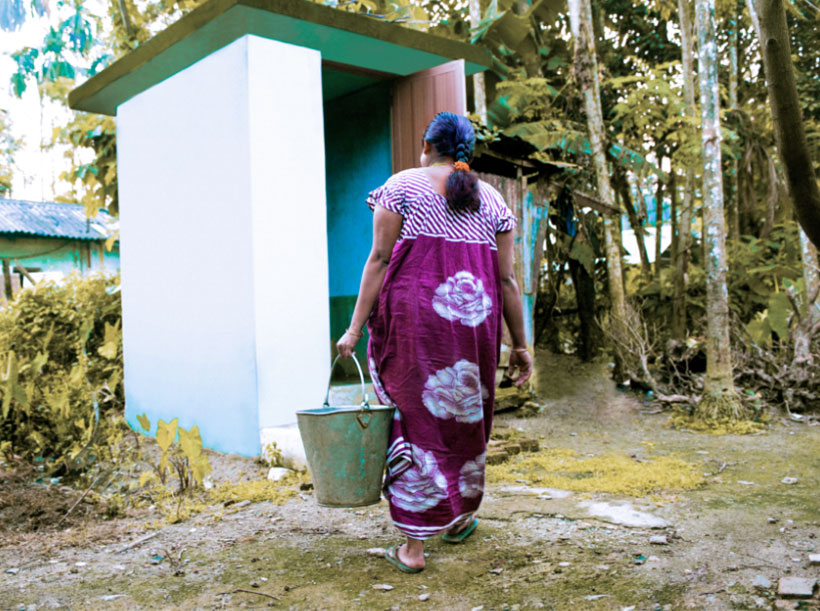 28,000 toilets
28,000 toiletsbuilding high-quality toilets
We build sanitation facilities both in rural and urban areas to help the poor have access to clean and safe toilets, which contributes to improving their health, dignity, and well-being as well as preserving the environment. In addition to installing household toilets, we also construct community toilets, public toilets, and decent sanitation facilities for schools.
-
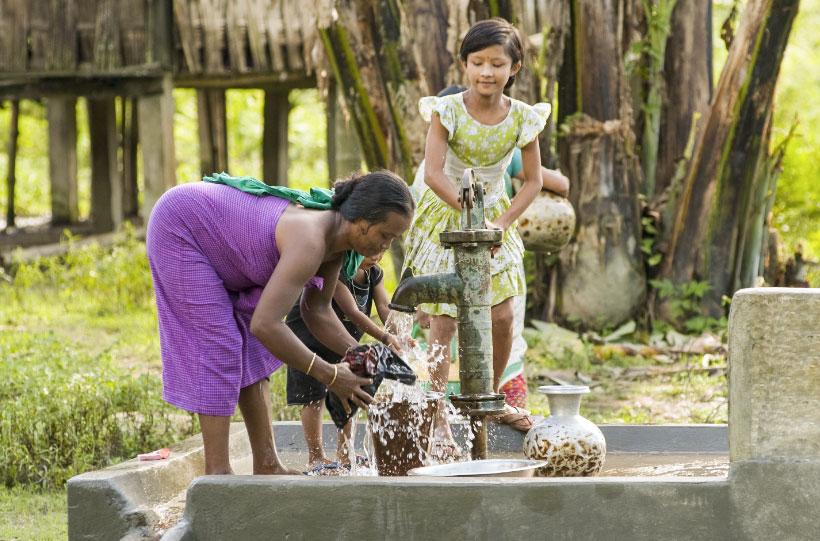 26,000 bore wells
26,000 bore wellsdrilling bore wells
We drill hundreds of bore wells each year in needy communities, including the "hardest-to-reach" regions where water is scarce. Some wells are drilled up to a depth of 600 feet to ensure water is available year-round, even during the driest summers or worst droughts. By drilling wells, we provide sustainable and reliable clean water to communities close to the places where they live in clusters.
-
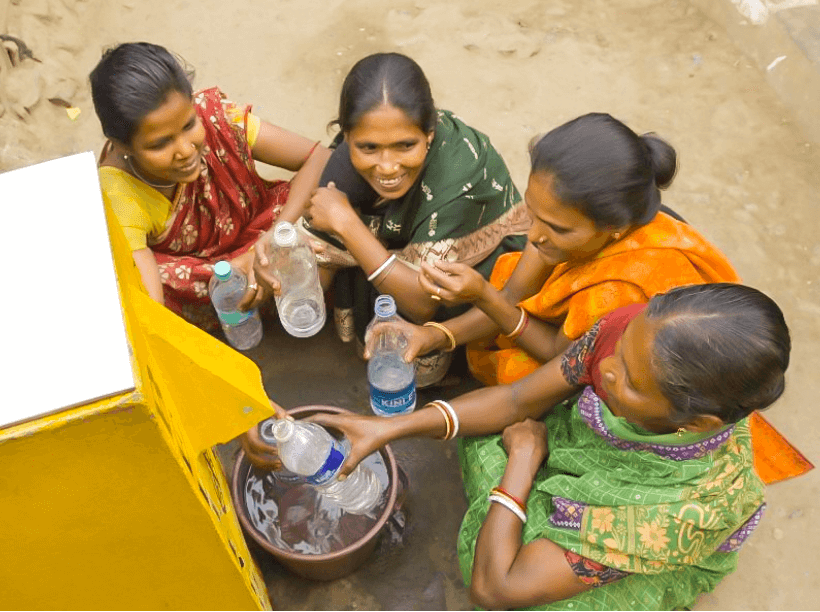 58,000 biosand water filters
58,000 biosand water filtersproviding biosand water filters
Our BioSand water filters make pure water available to communities that are in desperate need of access to clean water. These locally manufactured concrete filters provide an easily accessible and long-term solution in even the most undeveloped regions. We train users on how to use, clean, and maintain them correctly to ensure effectiveness and sustainability.
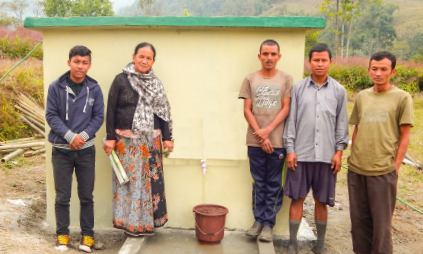
installing water tanks
To make clean water accessible to people in mountainous regions, we pipe pure water from natural springs to a community water tank. This saves hours of time for women, who normally have to walk kilometers to haul water from the stream to their homes. This also relieves women of the health burdens associated with carrying heavy loads of water over long distances.
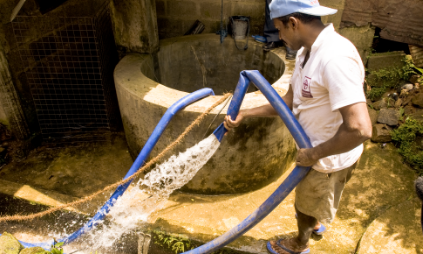
cleaning wells
We also undertake well cleaning in areas where constant flooding causes wells to become clogged and contaminated. We send teams to those places to clean and disinfect the wells, ensuring the water is safe for consumption.
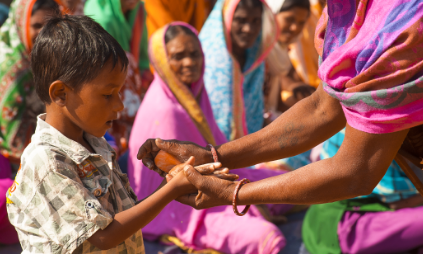
promoting hygiene
Our work doesn’t stop with the building of toilets and wells. We also educate communities on the importance of sanitation and hygiene and the risk of infection caused by a lack of sanitation. We provide practical instructions on keeping the new toilet hygienic and the environment safe, and we stress the importance of hand washing with soap.
Did you know
stories of impact
This Village Now Knows The Secret to a Healthy Life
Somnath, a poor farmer from Jharkhand, barely remembered a month passing without a visit to the doctor. The reason was...
Read MoreTheir Long-Held Dream Finally Comes True
Accessing clean water had been the biggest challenge these women from a small tea estate in Assam faced. A slow...
Read MoreThey No More Need to Wait For Night to Fall
For Suba Rai, having a toilet at home was considered a luxury. Having to survive on farming and daily labor,...
Read More